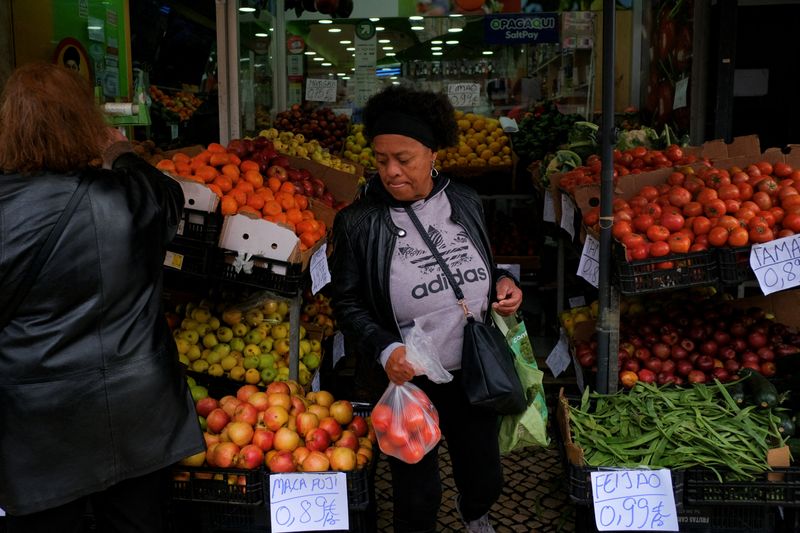By Catarina Demony and Miguel Pereira
LISBON (Reuters) - As prices soar in one of western Europe's poorest nations, many Portuguese say the government is failing to help them cope and they brush off a new measure to scrap value added tax (VAT) on basic food products as too insignificant.
"Things are really more expensive and it is difficult for us to get what we need...we are buying less," said Lisbon resident Teresa Peres, 62, who opts to shop at a food market in the Benfica neighbourhood to save some money.
"I think it's such a ridiculous (VAT) amount...it's not going to be felt anyway," she said.
The government, which did not reply to a request for comment, announced on Monday a list of 44 essential goods, including milk, bread, rice, tomatoes, and some types of meat and fish whose 6% VAT will be temporarily removed.
It increased subsidies to benefit poorer families but only the VAT measure addressed the plight of the 10-million-strong general population in a country where more than 50% of workers make less than 1,000 euros ($1,084) per month.
"Increase people's wages," said Ana Siva, a 45-year-old bakery owner at the Benfica market. "The VAT (measure) is insignificant. It will be a difference of 5 or 6 cents."
The government announced a 1% pay increase for the country's more than 740,000 civil servants.
Portuguese inflation slowed slightly to 8.2% year-on-year in February, but prices of unprocessed food products, such as fruit and vegetables, surged by 20.11%. The rising cost of living has caused a wave of protests in Portugal and in wider Europe.
DECO PROTESTE, Portugal's biggest consumer protection association, said the basket of essential goods cost around 226 euros, a 23% jump from a year ago.
"Consumers had to change their eating habits. We are beginning to see a large proportion of consumers who had to stop buying," DECO PROTESTE'S Rita Rodrigues said.
Antonio Brito, a vegetable and fruit seller, said fewer and fewer customers were showing up.

"Those who come are counting all the pennies because there is very little purchasing power," he said, urging the government to increase salaries and also pensions.
($1 = 0.9223 euros)